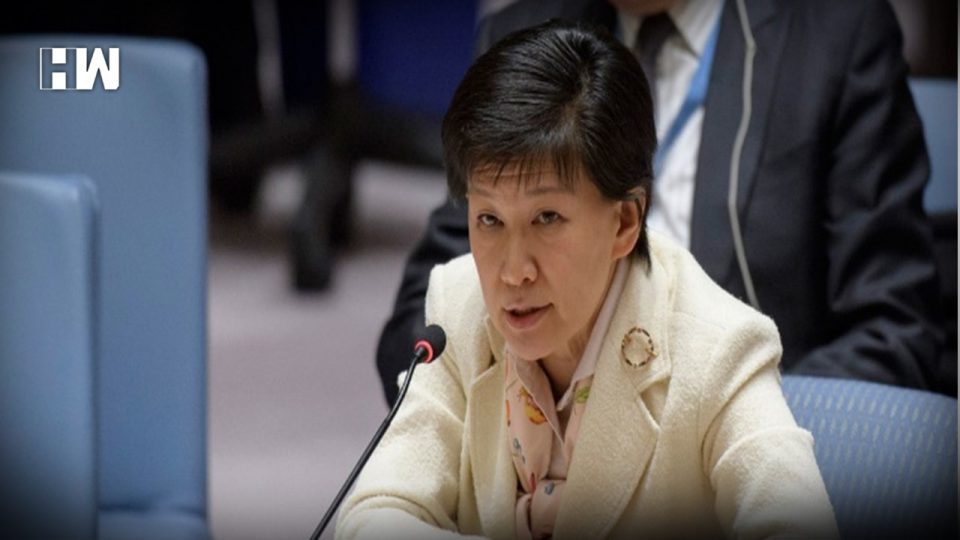The United Nations stressed the urgent need to not only identify those who have used chemical weapons in Syria, but also hold them accountable for their deeds.
The United Nations top disarmament official, on Wednesday, stressed the urgent need to not only identify those who have used chemical weapons in Syria, but also hold them accountable for their deeds.
“Without such an action, we are allowing the use of chemical weapons to take place with impunity”, Izumi Nakamitsu, UN High Representative for Disarmament Affairs, told the Security Council in a virtual briefing.
“It is imperative that this Council shows leadership in demonstrating that impunity in the use of these weapons will not be tolerated”, she added.
It is imperative that the Security Council shows leadership in demonstrating that impunity in the use of these weapons will not be tolerated
— Izumi Nakamitsu
Ms. Nakamitsu was briefing the Council members on the implementation of resolution 2118 where unanimous agreement was reached in 2013 to condemn “in the strongest terms” any use of chemical weapons in Syria.
Through the resolution, the Security Council also expressed its “strong conviction” that those individuals responsible for the use of chemical weapons there should be held accountable.
COVID-19 impacts deployment
Ms. Nakamitsu informed the Security Council that while the coronavirus pandemic continues to impact the ability of the Organisation for the Prohibition of Chemical Weapons (OPCW) to deploy to Syria, the body’s Technical Secretariat continued with its activities related to the elimination of the Syrian chemical weapons programme.
She also said that the OPCW Fact Finding Mission (FFM) continues to study all available information related to allegations of the use of chemical weapons in Syria, as well as its engagement with the Government and other States Parties to the Chemical Weapons Convention.
“As previously reported, further FFM deployments will be subject to the evolution of the COVID-19 pandemic,” she added.
Outstanding issues remain
Ms. Nakamitsu recalled the information provided by the OPCW Director-General to the Security Council last December, which noted that three outstanding issues related to Syria’s initial declaration were closed, while 19 remain outstanding.
One of the issues pertained to a chemical weapons production facility, which Syria declared as never being used for such production, she said. “However, the review of all the information and other materials gathered by the OPCW DAT since 2014, indicates that production and/or weaponization of chemical warfare nerve agents did take place at this facility.”
The OPCW secretariat has requested Syria to provide information on the “exact types and qualities” of agents produced and/or weaponized, but the country is yet to respond, Ms. Nakamitsu added.
The UN High Representative urged Syria to cooperate fully with the OPCW secretariat, noting that “the confidence of the international community in the full elimination of Syria’s
chemical weapons programme depends upon the OPCW being able to close these outstanding
issues.”
As an independent media platform, we do not take advertisements from governments and corporate houses. It is you, our readers, who have supported us on our journey to do honest and unbiased journalism. Please contribute, so that we can continue to do the same in future.

